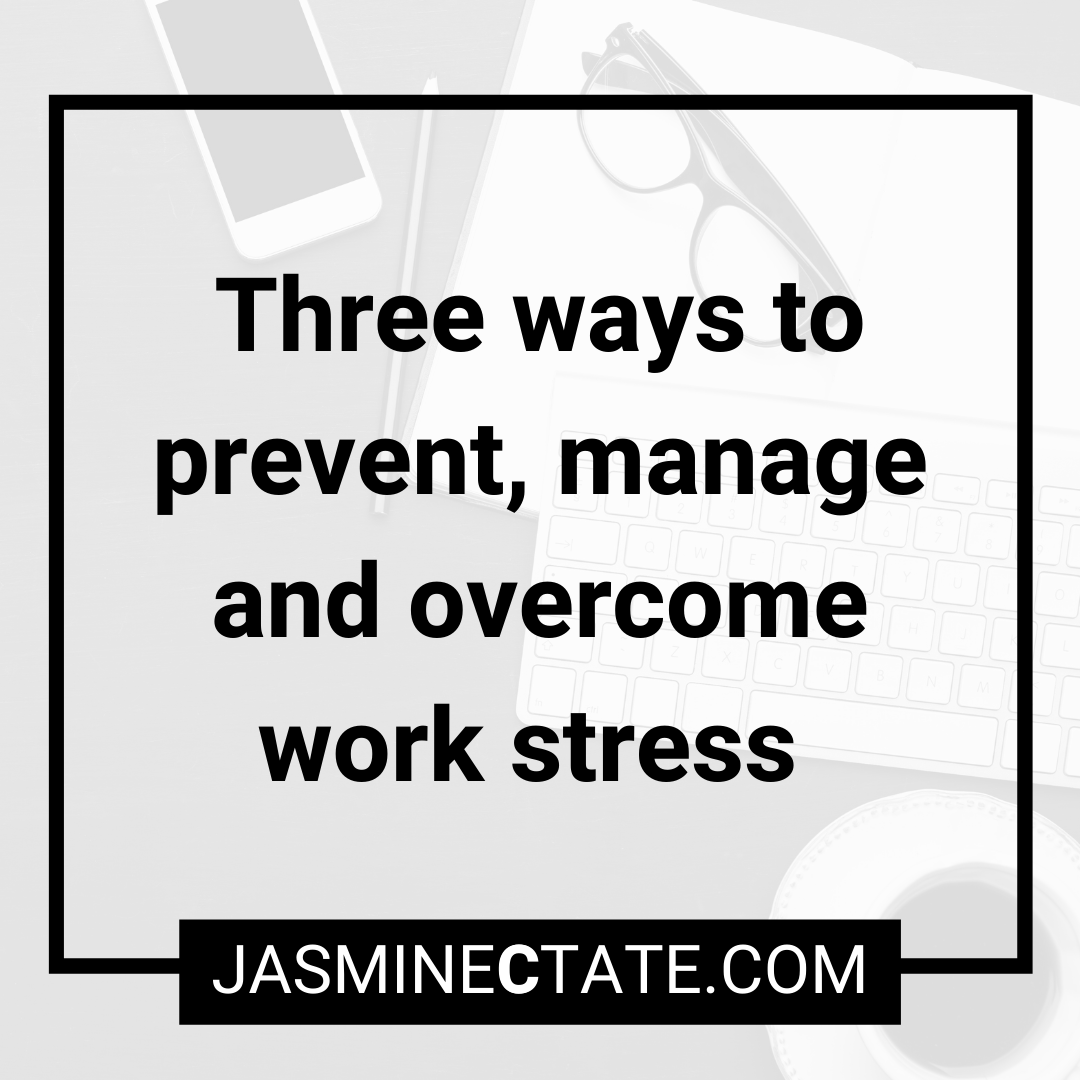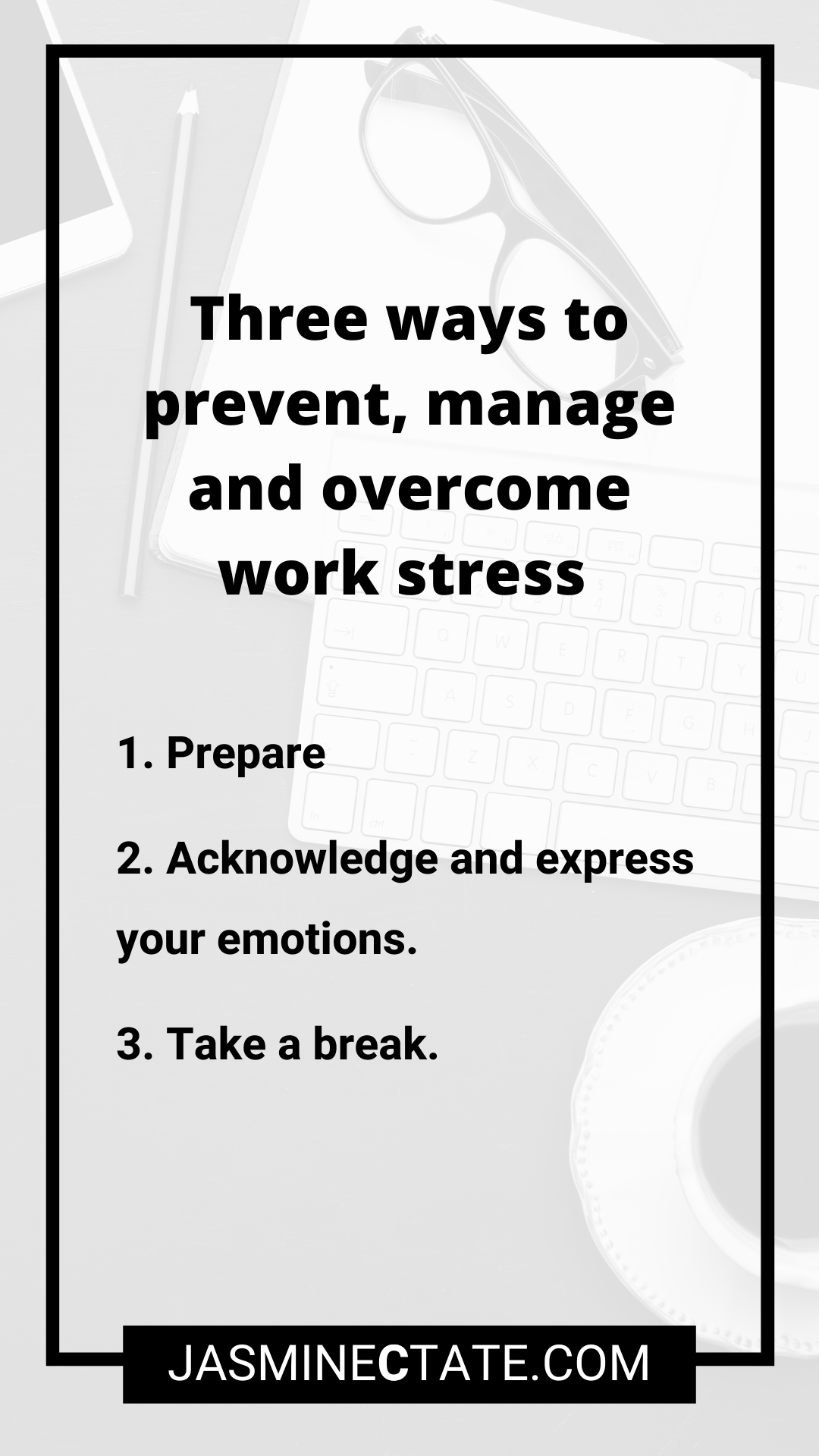According to the American Institute of Stress, stress is something we all deal with and engaging with dialogue around yours and others’ is one of the most valuable ways to combat stress when it arises. Although stress and anxiety often results from external events or circumstances, I’ve discovered that there are many times that my stress has been brought on by personal insecurities and perfectionism. Both areas that I’m working on consciously. Because I’m single and live alone, most of my stress comes from work. As we close out Stress Awareness Month and the last #RealWorldWednesday of April, I wanted to share the top three ways I manage work stress and anxiety.
1. Prepare
End each day with a plan for the next one.
I keep my days organized based on routines and lists. Whether you use a planner, notebook/pad or a list on a digital document, having a running list of tasks and adding them daily lists based on urgency ensures that deadlines are met and free time filled.
Schedule time for last minute or unexpected tasks, events and circumstances.
Having every minute of your day planned is an easy way to cause yourself stressed when everything doesn’t go according to plan, which is likely because life happens. Always leave “wiggle room” in your calendar for changes in deadlines, impromptu meetings, those that run longer than expected and unexpected office or virtual celebrations.
Know your triggers and have a response or remedy ready.
There are many elements of work life that can trigger stress from technology issues to condescending coworkers or even your own human errors, but knowing what triggers your anxiety and being prepared will ease potential stress and anxiety from forming. Examples can include:
Creating a playlist to help you focus or remind you of your skills and/or confidence.
Having a mantra or scripture ready.
Having a list of things you appreciate about coworkers that bring you stress or a time he/she helped you or made you feel good and/or appreciated.
Track your successes and review them when you make a mistake or fail at a task or project.
2. Acknowledge and express your emotions.
Talk it out.
Saying how you feel out loud can be a stress-reliever in itself. Communication is an important element of any successful relationship whether with God, yourself or your coworkers and/or supervisor. As a Christian, I try to follow the advice of Charles Stanley to make prayer an immediate response to my problems. It’s an easy way to calm me down and put things into perspective as I articulate my thoughts and feelings.
If you have a lot of time-sensitive projects on your list for the day, let your supervisor know you may need more time to complete the last minute request that just came through or ask if one of the other projects can be extended or delegated to someone else.
Sometimes you just need to vent. Having a family member or coworker you can talk to that understands and can allow you to release your feelings but also hold you accountable for your actions is important.
Write it out.
If you don’t feel comfortable saying it out loud. Writing it in a journal or typing it in a document can also be helpful. Be careful about venting via work communication channels. Writing during or after a stress or anxiety episode can help you prepare for the next time you face the same or a similar situation. Having a work journal is a great way to reflect on your experiences, lessons and progress as your career advances.
Cry it out.
If you’re like me sometimes you just have to let it go in tears, and that’s OK too. A recent Harvard Health article attests to the health benefits of crying and refers to it as a “safety valve” that can prevent repressive coping or burying feelings instead of releasing them, which can cause negative health effects. According to Leo Newhouse, LICSW “As challenging as it may be, the best way to handle difficult feelings, including sadness and grief, is to embrace them. It is important to allow yourself to cry if you feel like it. Make sure to take the time and find a safe space to cry if you need to.”
3. Take a break.
Work breaks are mandated by law for workers. Although the guidelines vary by state, organization, the number of hours in a work day and other factors, employers are required to offer breaks. You should definitely take advantage. I also want to emphasize here that stress can also be caused by creative or mental blocks that keep you from executing tasks such as writing projects. There are many ways to maximize your work breaks, but when it comes to stress these three have been the most effective for me.
Walk it out.
Taking a walk outside has many benefits and studies have shown the value of being in nature and completing 10K steps daily. I’m an advocate and strong believer in it. In the words of Barbara Corcaran “When in doubt, get out.” Walking away from a situation or tasks and coming back to it with a fresh mindset and perspective can be good for you and the project.
Dance it out.
There are some songs that make you feel good no matter what state you’re in, but when you hear a great song and add moves to it your body will thank you. As I suggested earlier, have your playlist ready and dance like nobody’s watching, even if you’re working from home and they are. Invite them into the dance party. :)
Stretch it out.
From increasing blood flow, to calming your mind and reducing tension, there is great value in stretching every day, but especially when you’re feeling stress or anxiety. Combining stretching with controlled breathing exercises, yoga and meditation enhance the benefits significantly.
Although stress and anxiety are a part of life, we can manage it and move through it effectively. The tips above are just a few ways to do it.
How do you manage work life stress? Share below in the comments or connect with me on social media @JASMINECTATE. If you found this post or any tips helpful, please help me spread them to a friend, family member or colleague who could use it. Thank you in advance.
Hugs & Handshakes,
Jasmine C. Tate


